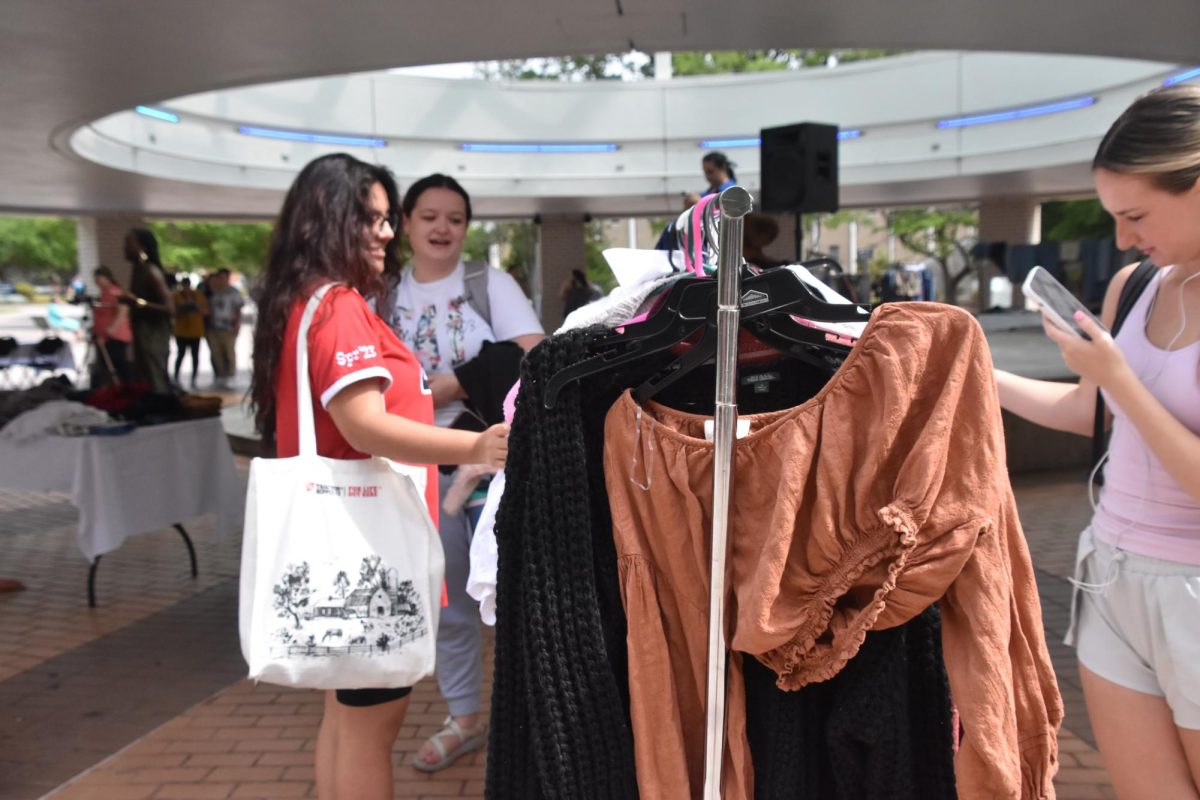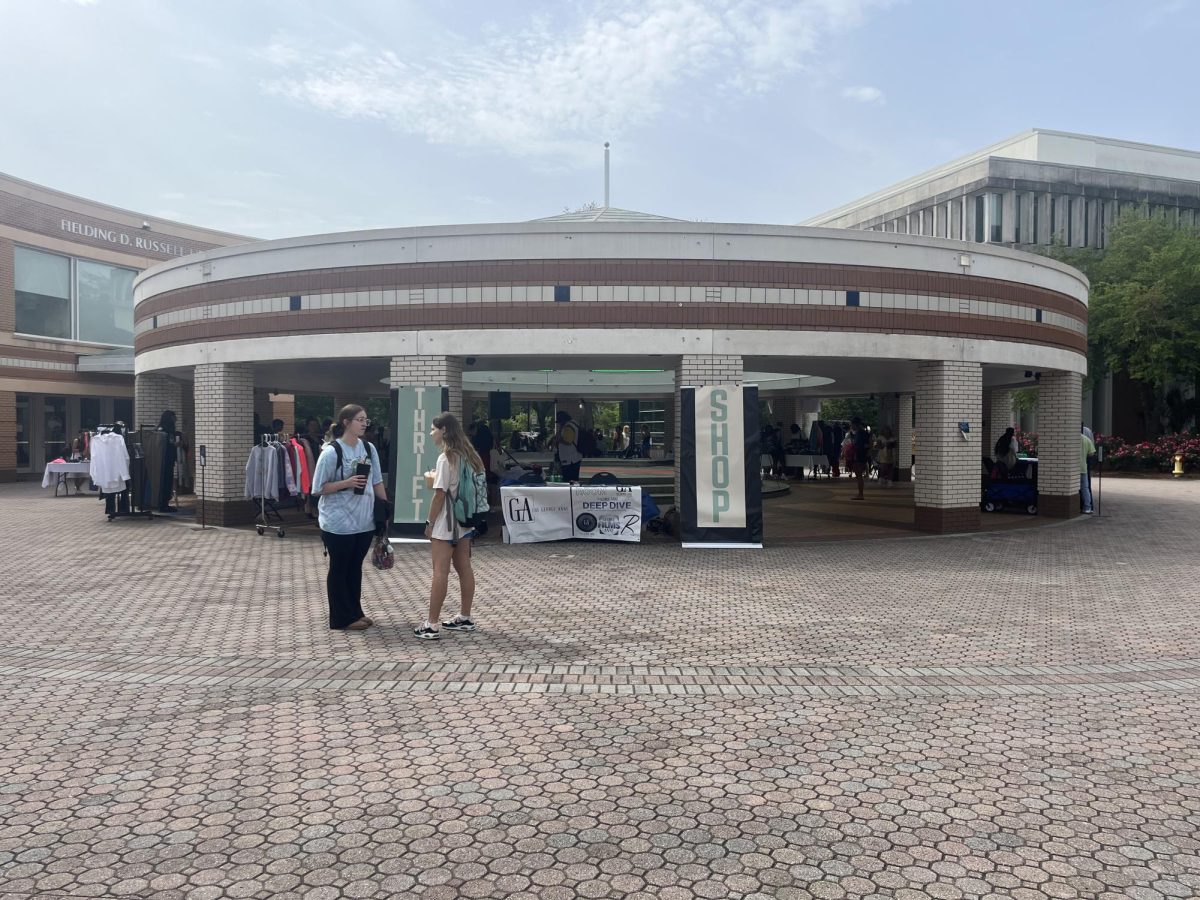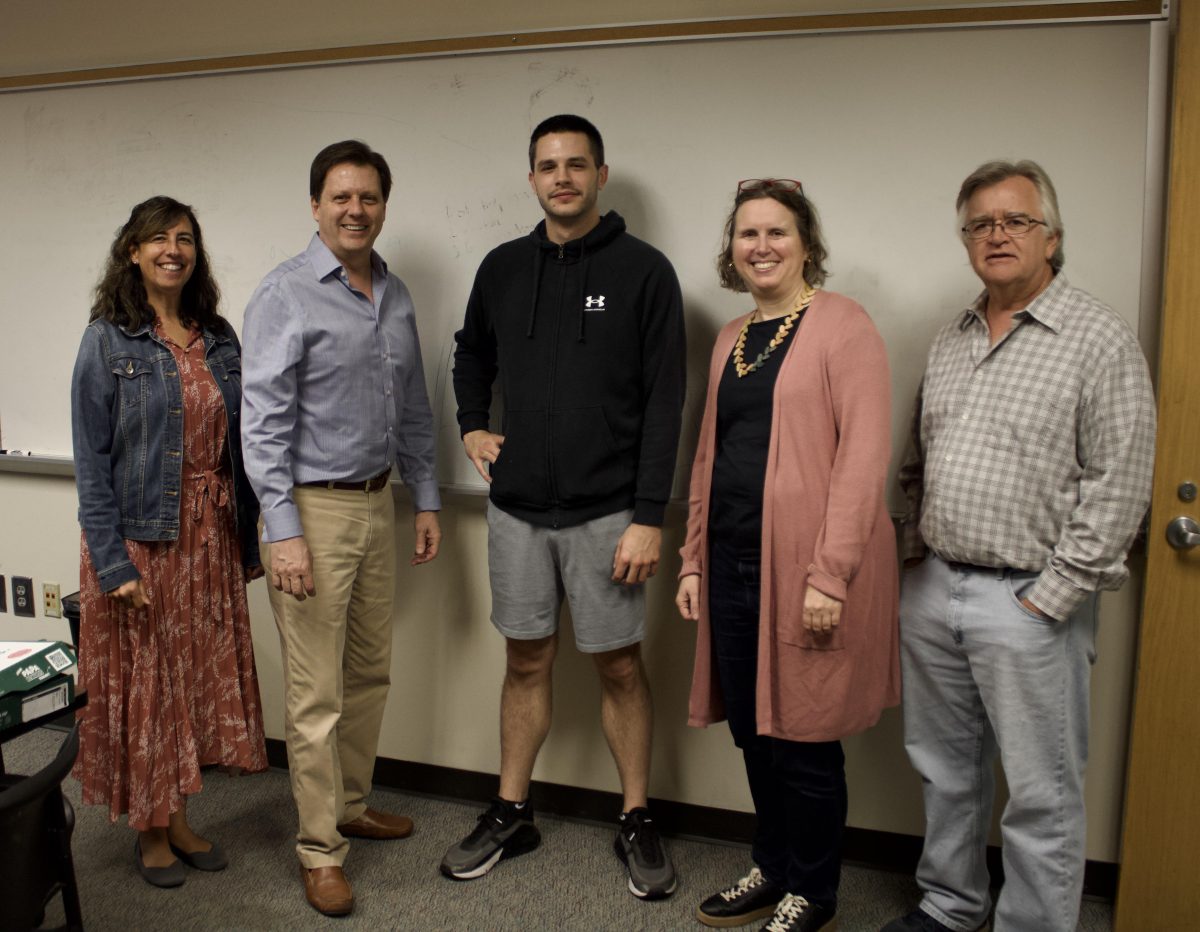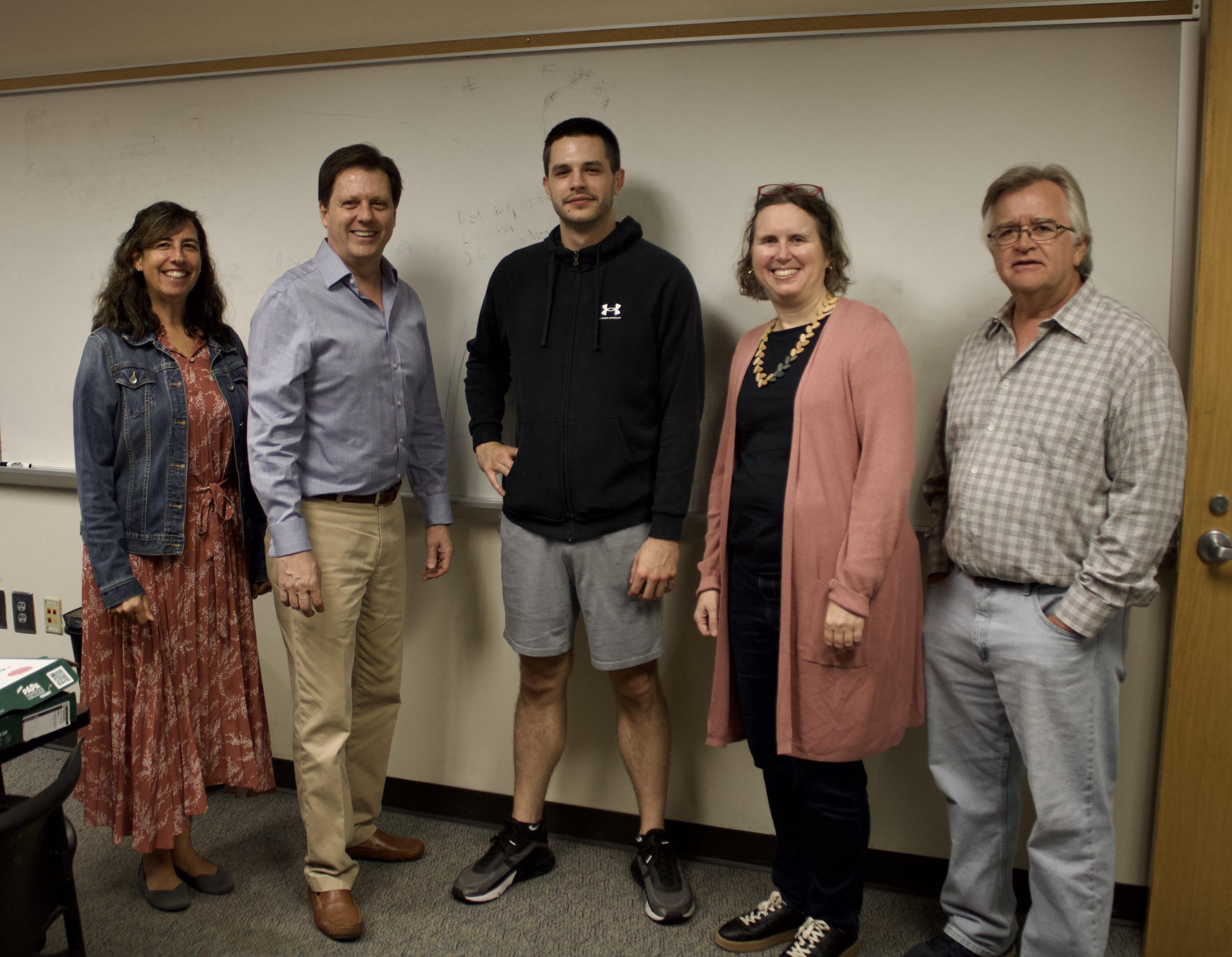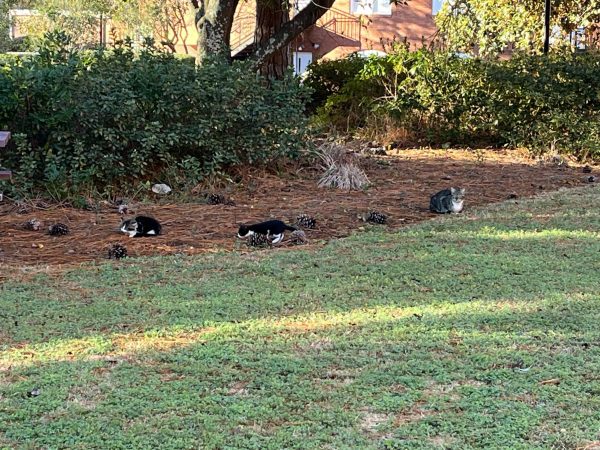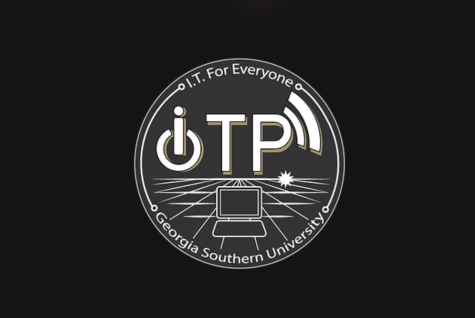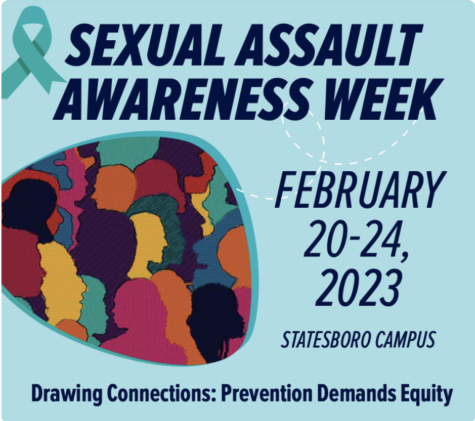Georgia Southern’s First 500: Phillip Tremble Shares His Story
March 31, 2020
Photo credit to Georgia Southern University
In 1977, Phillip Tremble became one of the first 500 African American students to attend Georgia Southern.
On Tuesday, Feb. 11, Tremble told his story to a room full of students and faculty during a Talk Tuesday event, hosted by the Diversity Peer Educators.
Tremble, 61, was raised by his grandparents on a 60 acre farm in Statesboro, Georgia.
He said he grew up embracing hard work, honesty and treating others the way he would want to be treated.
It was Tremble’s grandmother who urged him to get a college education, as his grandparents never finished high school.
Tremble’s grandfather passed away when he was in the 10th grade, leaving his grandmother to continue raising him. While going to college was something his grandparents always wanted him to do, Tremble, being a rebellious teenager, felt the opposite. He wanted to go into the Air Force and be the “Tom Cruise before there was a Tom Cruise.”
One day, while Tremble was working on his family’s farm, his grandmother came up to him with tears in her eyes and asked, “Phillip, what are you gonna do?” Not wanting to break her heart, he changed his mind and decided to go to college.
“I couldn’t tell her no,” he said. “I couldn’t break her heart.”
Having to work a full-time job, and, only taking one or two classes at a time, Tremble spent a total of nine years at GS, which was called Georgia Southern College at the time.
Tremble was a straight A student all throughout elementary school, which he began in first grade, because he did not attend kindergarten.
The integration of schools happened between Tremble’s fifth and sixth grade years. He said at first the transition was difficult, and, in sixth grade, his grades dropped to the point that his grandparents feared that he would not pass.
By seventh grade, he was able to adjust. His grades improved, and he began to make new friends. This improvement continued through his senior year of high school, where he ran track and played on the varsity basketball team.
When talking about his life experiences, including experiences at GS, Tremble said that it is important to understand that these were his experiences. He knows that different people all have different experiences and perspectives, and it is important to keep that in mind.
GS integrated in 1965, meaning that African American students had been attending for a little over a decade when Tremble began his college career. He said he knows that earlier African American students faced levels of prejudice that he himself did not face.
Racial slurs were used to them, face-to-face,” said Tremble. “They were told ‘get out of my class.’ Their tests were not graded equally…they had those things they would tell.
Phillip Tremble
While these things still happened in some cases by the time Tremble began college, they were not done in such an obvious way.
“I can tell you that by the time I got there, it was a little more covertly done,” he said. “You knew that you were Black. It wasn’t a secret. You didn’t have to look in the mirror to tell because of how they were treating you.”
Tremble said that when he became a student at GS, it was at first very overwhelming. For the first time he was around people not just from Bulloch County, but from all over the United States and other countries. He said that he was not quite ready for the college environment.
“I was scared, lost and somewhat shy, but excited all at the same time,” said Tremble.
He said he realized that he was not alone in how he felt and quickly began making new friends.
Tremble said that GS has always had a diverse campus, even back then. He made friends with all races, including those from countries outside of the United States.
“In Georgia Southern, it was everybody from all over the planet,” said Tremble. “Even when I first started, we would have students from everywhere from every country, every state…”
Upon arriving at GS, Tremble declared a major in electrical engineering. He was inspired by his uncle, who was a mechanical and civil engineer. After a while, he realized that he was bored with engineering. Tremble then changed his major to education, planning to be a science teacher and coach.
As time went on, he was still unsure about what he actually wanted to do for his career, so he enlisted the help of a counselor on campus. She told Tremble that he clearly is a people person. He then found his home majoring in psychology.
Tremble, like many other college students both now and then, was asked what he was planning on doing with a degree in his major. Undeterred by any criticism, he simply responded that he was going to make a life for himself, and he did just that.
At GS, Tremble felt as if it was immensely different than what he was used to in high school.
“I was responsible for my education,” he said. “I was responsible for making sure I showed up in class and if I didn’t show up in class, the teacher didn’t turn me into the principal and write me up, you know, those things you get when you’re in high school. I became responsible for all of that, and it took me a while to grasp that.”
Tremble was good in school, and, despite the challenges of having to work full-time, and sometimes not feeling accepted, he eventually received a Bachelor of Science degree in Psychology in 1986.
Tremble said that his time at GS shaped him in numerous ways. He also said that he often used what his grandparents taught him to approach any challenges that he faced.
“The experiences I’ve had at GS have allowed me to be a better rounded person with a greater understanding and appreciation of others,” he said. “My experiences at GS have taught me not to be selfish, but to be more understanding of the views and perspectives of others.”
Tremble said that understanding does not always mean agreeing, but that he takes the time to try to understand others and why they feel the way they do.
“I learned patience and how to more openly get to know and understand different people, different cultures and different environments with much less stress. I actually enjoy it,” Tremble he said.
When asked what advice he would give to African American students attending GS today, Tremble said that he would give the same advice that he would give to any student, regardless of race. He said that GS is a great university and that anyone willing to do the work required has the same opportunity to find success and anyone else.
“The GS I know today embraces diversity and works diligently to maintain a culture that is inclusive for everyone,” said Tremble. “It’s a great university and I am proud to be a graduate of GS.”
When talking about racially motivated incidents on campus, Tremble said that, as a positive person, he thinks it is important to stay calm, and try to find a solution that works for everyone. He said this does not mean that you ignore or accept the situation, but try to find ways problem to be solved with a better outcome.
When you fight fire with fire, you tend to get a bigger fire. I think it is important that you take a higher road to deal with that, diffuse that in a different way. Use that as an opportunity to make things better.
Phillip Tremble
Tremble is now the director of Human Resources for the Bulloch County Board of Education.
He is also heavily involved in the Statesboro community. He serves on the Board of Directors for the local United Way of Southeast Georgia, the Bulloch Alcohol and Drug Council, Ogeechee Area Hospice and the East Georgia Regional Medical Center.
Tremble is a member of the Statesboro Area Society of Human Resource Managers and the Georgia Association of School Personnel Administrators (GASPA), and he sings in his church choir. Tremble and his wife Liz, have a daughter named Larkyn, who plans to attend GS this fall.
Jenna Wiley contributed to this article

